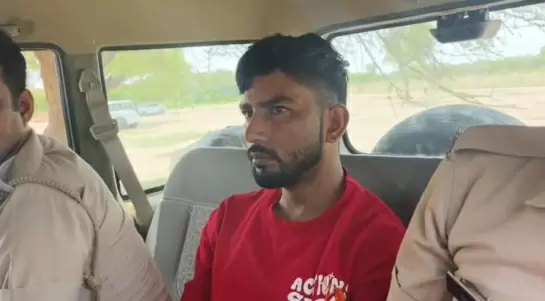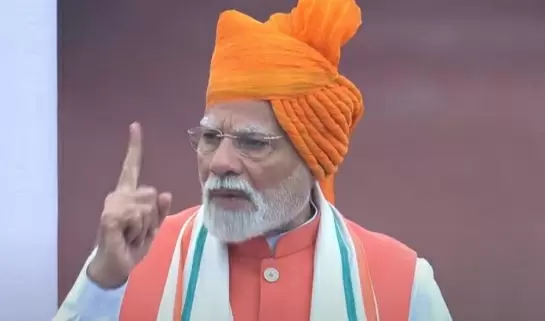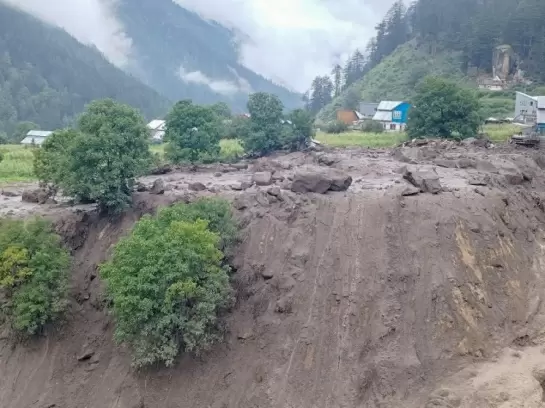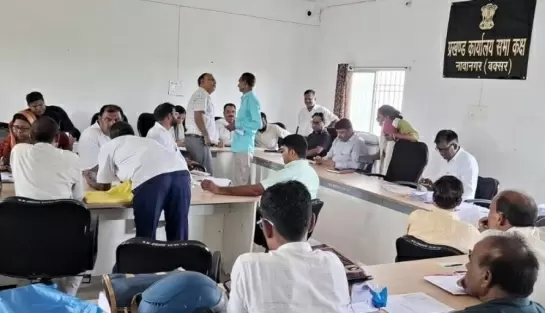Democracy triumphs (Column: Spy's Eye)
26-May-2019
The parliamentary election in the world's largest democracy was watched by all countries, big and small, for reasons that are not far to seek: the likely impact on India's rising profile at the global level, the manner in which an extraordinary amount of dirt was kicked up by the opposition - itself divided by caste, creed and region - against the Modi government making the outsiders wonder about the levels to which the public discourse could dip here and the unparalleled scale of management of the polls in a country of India's size that was once again tested for the Central Election Commission's competence and firmness.
The results denote, first and foremost, a triumph of democracy which would get India a deeper respect from the democratic world and give an enhanced sense of assurance to the international community at large that the voice of peace and development would be strengthened. India has produced in Narendra Modi a leader of phenomenal acceptability, something that happens once in generations. Internally an analysis of the outcome brings out three marked readings - all adding to the democratic credentials of India as also the robustness of the average Indian voter in making his or her choice at the hustings.
First, people have recognised performance and image as the real traits of leadership in public life - the 'herd mentality' that voters in India often showed in the past was giving way to individual's autonomy in evaluating a party and its leadership. On the whole, the youth are primarily responsible for this welcome shift. They are better informed - not merely because of the social media outreach that they are savvy with - and are upfront in calling a spade a spade and rising above what had ailed this country for long by way of identity politics.
The two reasons that had brought Narendra Modi to the fore in 2014 - personal integrity that stood out against the backdrop of permissiveness of corruption and the promise of handling governance with an iron grip - remained valid and at the end of the five-year tenure he stood tall as the frontline leader of the nation and a symbol of India's proactive voice in the world. The crassness with which he was denounced as a 'thief' by those who had no strength of public image for themselves, did not hold Prime Minister Modi from using the long electioneering spell to reach out to the people in far corners of India and tell them in easy language about all the ideas of public good that he was pursuing. There was evidently an undercurrent of disapproval of the abusive tirade against Modi, among the new generation voters. Narendra Modi not only boosted the cause of BJP. He became the best symbol of BJP for the common voter of India.
In a democracy a party is as good as its leader and if Modi took his party to new heights, what is the logic of the opponents in putting him down for running a 'Presidential' form of campaign? The General Election was conducted within the Constitutional framework of the parliamentary system. It is not Modi's fault that no other party could produce a leader at the national level who could match him in terms of image and performance. It is significant that at the state level, leaders of merit were recognised too by the voters across the party spectrum - Nitish Kumar in Bihar, Navin Patnaik in Odisha, Devendra Phadnavis in Maharashtra and of course Capt. Amrinder Singh in Punjab. The emergence of YS Jagan Mohan Reddy of YSR Congress Party in Andhra Pradesh and M.K. Stalin in Tamil Nadu, who represented important political lineage but had no baggage yet, again showed that people expected them to measure up to their expectations in the future and would like to test them out. The upshot of all of this is that an unbiased evaluation of leaders operating at the national or state level politics by the public is becoming the overriding determinant of the voting pattern. This is an extremely positive development.
The second take from this election is a reaffirmation of what happened first in 2014 - the voters breaking out of the shackles of caste and regional loyalties to support a leader and a party that they believed were better for the country. With the shrinking of the Congress as an all-India party, the regional parties, most of them rooted in caste, presumed they had become more important and developed ambitions of anchoring the alternative to the Bharatiya Janata Party (BJP). The alliance of Samajwadi Party (SP), Bahujan Samaj Party (BSP) and Rashtriya Lok Dal (RLD) in Uttar Pradesh went ahead of itself in projecting its leader as a possible Prime Minister, oblivious of the pull of Narendra Modi on the ground and the organisational build-up that BJP President Amit Shah was able to achieve since 2014.
The biggest state of India clearly demonstrated that those outside of the hardcore loyalists of caste and regional outfits voted for the BJP and its leadership on the basis of performance and promise. The advantage of a Congress win in Rajasthan, Madhya Pradesh and Chhattisgarh assemblies a few months ago seems to have been wiped out in the parliamentary poll because of the performance matrix - the people quickly returned to Modi's BJP. In the process, dynasties were broken, many new young faces achieved success and well entrenched politicians faced ouster from their captive constituencies - again because of the new awareness that the Indian voters have developed in the age of knowledge that is upon us. That Indian democracy is breaking new ground is the good news that the General Election has brought this time.
And finally, the opposition led by the Congress committed a strategic faux pas by seeming to disassociate themselves from the people's ingrained sentiment for national security by not only refusing to give credit to Prime Minister Modi for his decisiveness in ordering punitive action against Pakistan after the Pulwama terror attack but going to the absurd extent of questioning the authenticity of the Balakot air strike itself. In India, people put their personal concerns including issues of economic scarcity aside to do their bit for the nation's protection in a contingency and it is amazing how the advisors of the Congress seemed to be so cut off from the masses on this vital matter.
What is worse, the opposition decried Modi's stand on Pakistan that 'terror and talks don't go together' as an avoidable 'muscular' policy towards a 'neighbour' but maintained complete silence on Pakistan's mischief of sending in Mujahideen into the Valley to destabilise the state of J&K. They upheld the pro-Pak separatists who had made Kashmir a Muslim issue and thus knowingly or unwittingly put the Muslim minority and Pakistan on the same side of the fence.
The opposition early on raised the bogey of 'minority feeling unsafe under the Modi regime' and 'secularism of India being in danger' for political reasons. A democratic state has two main instruments of secularism to be brought into play - development and law enforcement for all alike. There is no indication that Modi government introduced any sectarian element in development or that it interfered with the autonomous duty of the state governments to enforce law equally for all. The opposition even shunned the use of the word nationalism and adopted a pro-Minority line in a manner that produced a silent Hindu backlash. The victory of Sadhvi Pragya from Bhopal and the extraordinary success of BJP in West Bengal amply illustrate this. It should not be forgotten that a parliamentary election somewhere builds the consciousness of national identity amongst the people.
In the 2019 general election, the BJP has touched the line of 300 on its own. The results are transformational and cannot be explained by the traditional poll arithmetic. There is a new understanding among the voters on what is good for them and for the country. They would expect Prime Minister Modi to complete the unfinished agenda of his first tenure - in the areas of punishing the corrupt, keeping the aspirations of the youth alive and building a strong nation that could deal with the threats, external or internal.
(The writer is a former Director Intelligence Bureau) IANS
Massive Voter List Fraud Unearthed in Madhya Pradesh, Says Bhaskar English Report
Tejashwi Yadav Says Two NDA leaders Hold Dual Voter IDs, Questions EC’s Impartiality
Once Jayalalithaa’s Delhi Voice, V. Maitreyan Joins DMK
No Pillars, Just Water: China’s Floating Bridge Draws Tourists
BJP vs BJP Contest at Constitution Club: Rudy Extends Two-Decade CCI Tenure









